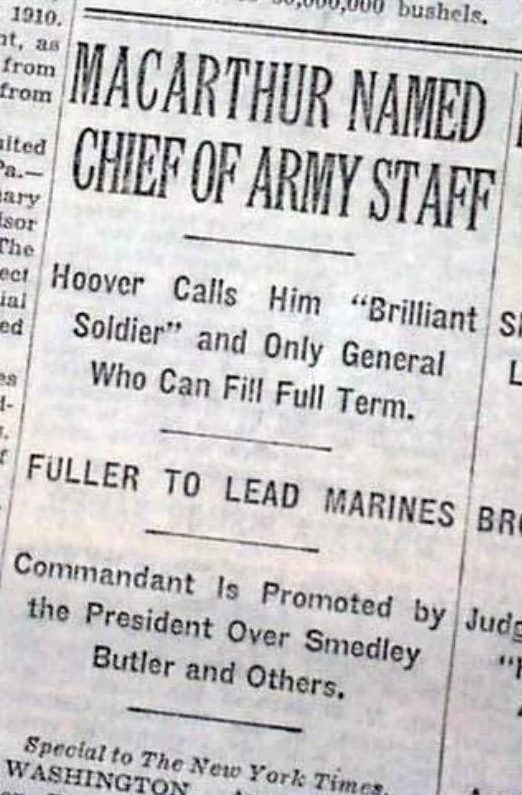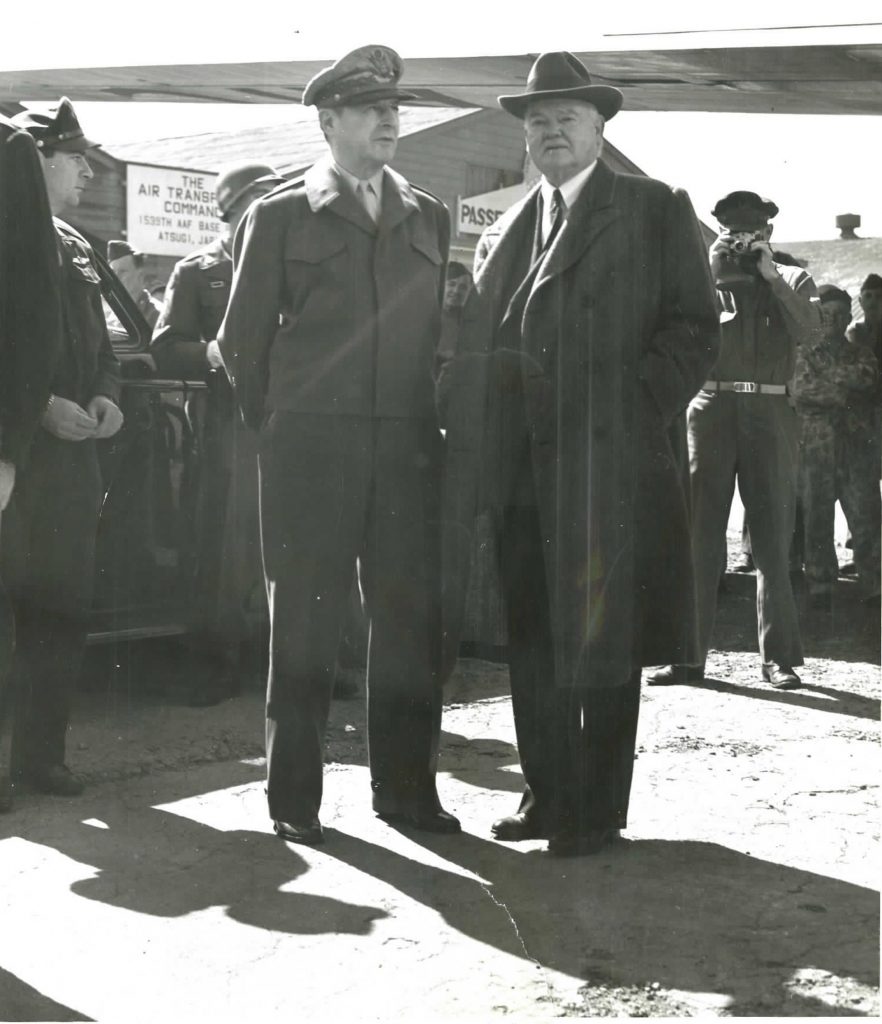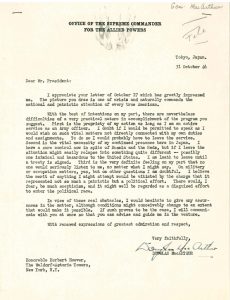At the time of MacArthur’s firing in April 1951, President Hoover and General MacArthur were on good terms. Their relationship went back many years, extending all the way back to Hoover’s presidency.
In 1930, President Herbert Hoover promoted MacArthur to Chief of Staff of the Army. His public statement reflected his glowing opinion of the general.
“I have decided to appoint General MacArthur as Chief of Staff of the Army on the retirement of General [Charles P.] Summerall. General MacArthur is recommended by Secretary Hurley, and it, of course, gives me a great deal of pleasure to promote so brilliant a soldier to that position.”

As Chief of Staff of the Army, MacArthur disobeyed Hoover, his Commander-In-Chief, during the Bonus Army March of 1932. Even though he had ignored Hoover’s commands, MacArthur claimed he had followed Hoover’s orders.
Hoover never publicly expressed his disapproval of MacArthur’s handling of the Bonus Army. Privately, he was upset that MacArthur had ignored his command – but not upset enough to fire or rebuke him.
Hoover’s leniency with MacArthur would reappear twenty years later, when he helped MacArthur after he was fired for publicly disagreeing with President Truman.
Why would Hoover continue to respect MacArthur after MacArthur disobeyed Hoover’s orders?

In May 1946, Hoover visited Tokyo, where General MacArthur was stationed, and MacArthur was there to welcome his old commander-in-chief.
Hoover admired MacArthur’s efforts to construct a democracy in Japan. Unlike Truman, Hoover did not believe that it was wrong for generals to make political speeches. Hoover felt that democracy in the United States was falling apart, and believed that MacArthur would be just the right man to fix the country and give people encouragement.
After his visit, he sent a letter to MacArthur pleading him to return home and conduct a series of speeches to boost public morale. He said: “The whole nation will listen to you as to no other man — and they would like the opportunity to pay some tribute for our unparalleled service.” Hoover had a lot of confidence in MacArthur’s ability to unite the people and thought he was a great general.
Read Hoover’s Letter to MacArthur
MacArthur refused, and responded with this letter

Why do you think MacArthur felt uncomfortable making political speeches here, yet felt justified commenting on Truman’s war strategy years later?